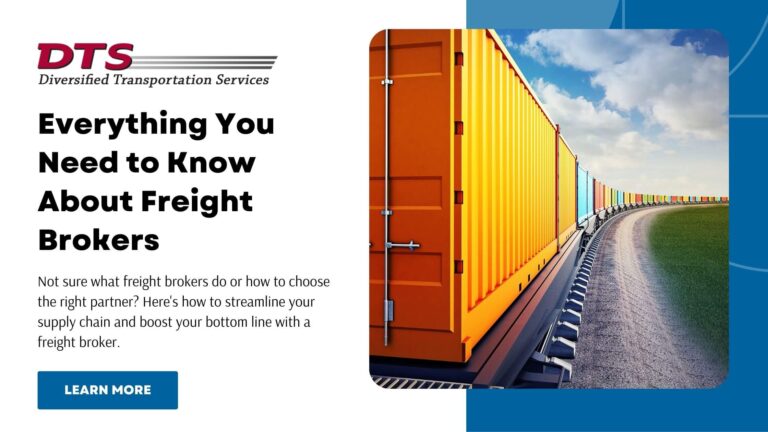
When it comes to handling and shipping freight, there are a lot of moving parts. Choose the wrong partner and you could encounter costly communication issues, delays, or damages to goods. So, whether you’re a shipper with too little time or staff to maintain standards, or a freight carrier looking to increase your earning potential, you’ll likely benefit from working with a freight broker who can help streamline the supply chain. Here’s everything you need to know.
A freight brokerage, also known as a transportation broker, is a business that helps connect shippers with carriers to move their freight from one location to another.
In essence, a freight broker is a matchmaker between shippers and carriers. They act as a middleman, facilitating communication between the two parties to ensure that both are on the same page and prepared to support the others' needs. They also help ensure that the handoff of goods between shippers and carriers goes smoothly.
Freight broker companies provide a variety of services, including negotiating rates with carriers, tracking shipments, and handling paperwork and documentation.
This entails:
Whether you’re a shipper or a carrier, your business could benefit from using a freight broker.
A freight broker can greatly reduce your overhead costs in two key ways.
First, they can offer extremely attractive pricing due to their volume buying power and close working relationships with many carriers.
Second, freight brokers act as consultants, not employees. That means no hiring costs, employee benefits, or full-time salary to pay.
As a shipper, you won’t necessarily know the optimal routes and strategies for transporting your freight in a timely manner. To eliminate those costly delays, a freight broker will work with carriers to optimize their route and put procedures in place to minimize any damage to your cargo.
No matter what industry you're in, scalability can be challenging. Fortunately, freight brokers have experience helping shippers and carriers grow their businesses and can give actionable insights.
Whether you’ve scaled too quickly and need help handling your logistics, or you’re looking to put the right processes in place ahead of scaling, a freight broker can offer support.
Freight brokers have the expertise to streamline your logistics. For shippers, that means working with a single point of contact from start to finish no matter how many carriers are moving your freight. For carriers, it means having a freight broker optimize routes, negotiate prices on your behalf, and minimize deadhead miles.
Freight brokers can also offer supplemental insurance for shippers when their shipment value exceeds the carrier-provided liability coverage. This supplemental insurance is extremely valuable when there is loss or damage to a shipment to help ensure that a shipper’s goods are covered.
In the event of a claim, freight brokers assist and advise their customers in filing the claim with the motor carrier. Loss and damage to shipments unfortunately do occur in the transportation industry and freight brokers have an understanding of the law surrounding freight claims to help consult a shipper in their cargo claim.
Freight brokers and freight forwarders are similar, though there are some key differences.
As mentioned, a freight broker is a third party that helps shippers and carriers find partnerships that will maximize their profits while reducing headaches. They are a middleman that organizes the movement of freight, without ever touching any goods.
A freight forwarder also arranges the transportation of shipments but is licensed under the Federal Motor Carrier Safety Administration (FMCSA) for both interstate and foreign commerce. In other words, they can arrange shipments under their own bill of lading and from country to country. Additionally, freight forwarders can provide warehousing for their customers where they break up or consolidate goods, route and package shipments, and handle the customs clearance process.
So, while the freight forwarder is more active on the ground moving shipments, the broker manages the relationship between shippers and carriers.
A freight agent is much more akin to a freight broker. In fact, they generally work directly with a broker.
Their role is to build connections with as many shippers and carriers as possible so that they can help freight brokers make effective matches. They don't typically handle the nitty-gritty details of logistics, though, which is why they work for freight brokers rather than shippers or carriers directly.
If you're in need of transportation services, you may be wondering: "Is there a reliable freight broker near me?". Here's how to find the right one for your needs.
Diversified Transportation Services (DTS) is a leading third-party shipping and logistics provider that can help with your freight brokerage needs. Get in touch today to speak with our team.
Whether you're a company looking to improve one facet of your supply chain, your entire supply chain, or simply looking for a transportation and logistics consultation, we can help.